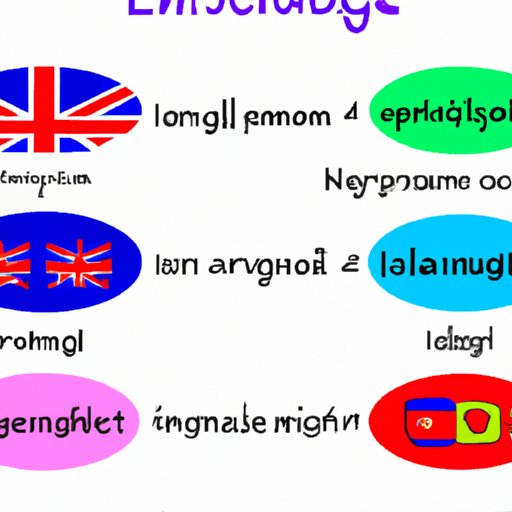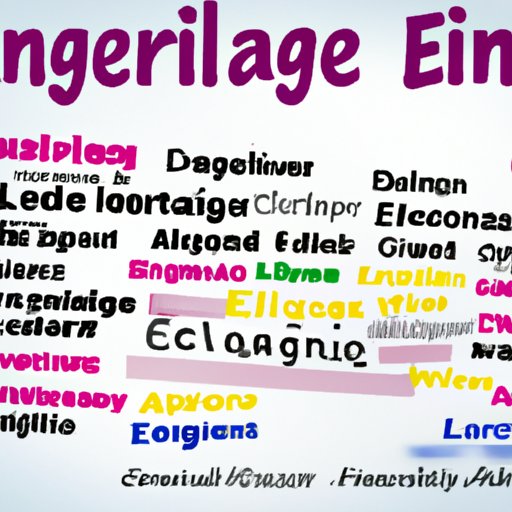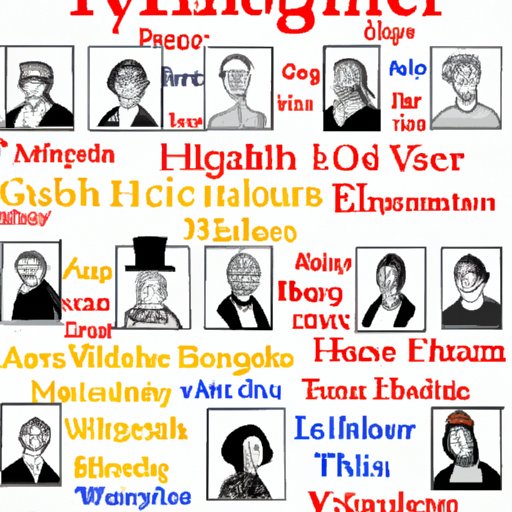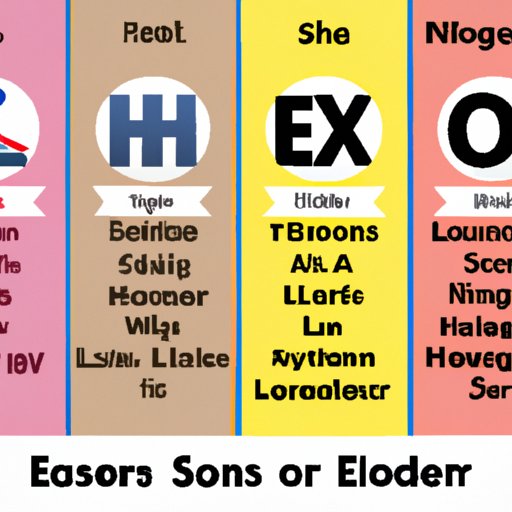Introduction
The English language has a long and complex history, spanning over 1,500 years. It is spoken by hundreds of millions of people across the world, and has been adopted as the official language of many countries. But who invented the English language? This article seeks to answer this question by exploring the historical development of the English language and examining the contributions of different cultures and languages to its evolution. Furthermore, it will look at the major figures responsible for inventing the language.
A Chronological History of the Development of English Language
English has gone through several stages of development since it first emerged in the 5th century. The earliest form of English is known as Old English (sometimes referred to as Anglo-Saxon). Old English was spoken in England until around 1066 when the Norman Invasion took place. This marked the beginning of the Middle English period, which lasted until the 15th century. During this time, many French words were added to the English language, resulting in a hybrid language known as Anglo-Norman. By the 16th century, English had evolved into Early Modern English, which is the language of Shakespeare’s works. Finally, in the 17th century, Late Modern English emerged, which is the language we use today.

The Contribution of Different Cultures to the Creation of English
The English language is a product of several different cultures and languages. It is widely believed that the original inhabitants of Britain were Celtic and Germanic tribes, who spoke languages related to Welsh and Dutch. When the Romans invaded Britain in 43 AD, they introduced Latin, which had a huge influence on the development of English. Then, with the Norman Conquest in 1066, French became the dominant language of Britain, resulting in a large influx of French words into the English language. Lastly, during the Viking invasions of the 9th and 10th centuries, Scandinavian languages also had a significant impact on the development of English.
Exploring the Origins of English Through Historical Records
Although there is no single author or inventor of the English language, there are some historical records that can help us trace its origins. Old English documents such as Beowulf (8th century) and The Dream of the Rood (9th century) are important sources of information about the development of English during this period. Similarly, Middle English documents such as Geoffrey Chaucer’s Canterbury Tales (14th century) and Thomas Malory’s Morte d’Arthur (15th century) provide insight into the evolution of English during this time. Additionally, Early Modern English documents such as William Shakespeare’s plays (16th century) and the King James Bible (17th century) offer valuable information about the development of English during this period.
Tracing the Evolution of English from its Proto-Indo-European Roots
The English language is descended from Proto-Indo-European, an ancient language spoken by the ancestors of modern Europeans. Over time, English has undergone numerous phonetic, grammatical and syntactical changes, resulting in the language we use today. For example, the Great Vowel Shift, which began in the 15th century, resulted in the lengthening of vowels and the shortening of consonants, resulting in the pronunciation of English we know today. Similarly, the regularization of verbs (e.g. the addition of -ed to form the past tense) and the adoption of standardized spelling rules have helped shape the English language.

Examining the Influence of Other Languages in the Development of English
In addition to the influence of Proto-Indo-European, other languages have had a significant impact on the development of English. Greek and Latin, for example, have contributed thousands of words to the English language, particularly in the areas of science and technology. Similarly, French has had a profound influence on the English language, with over 10,000 French words having been adopted into English. Lastly, Scandinavian languages such as Old Norse and Old Icelandic have also contributed to the English language, particularly in terms of vocabulary.

An Overview of the Major Figures Responsible for Inventing English
Although the English language has no single inventor, there are some key figures who have played an important role in its development. William Caxton, for example, was the first person to print books in English, introducing the standardization of spelling and grammar. Similarly, Samuel Johnson was responsible for compiling the first comprehensive dictionary of the English language, while Noah Webster helped to create the American version of English. These three individuals, among many others, have had a major impact on the development of English.
Conclusion
In conclusion, it is clear that the English language has a long and complex history, with contributions from numerous cultures and languages. While it is impossible to pinpoint one single inventor of the English language, there are some key figures who have played an important role in its development. From William Caxton to Noah Webster, these individuals have helped shape the English language as we know it today.
(Note: Is this article not meeting your expectations? Do you have knowledge or insights to share? Unlock new opportunities and expand your reach by joining our authors team. Click Registration to join us and share your expertise with our readers.)
